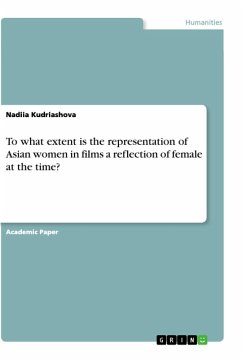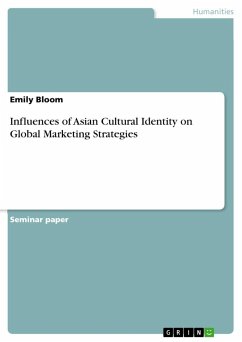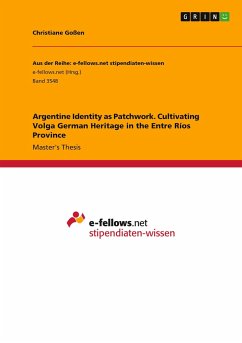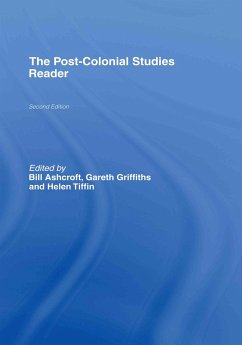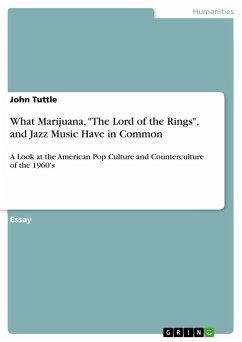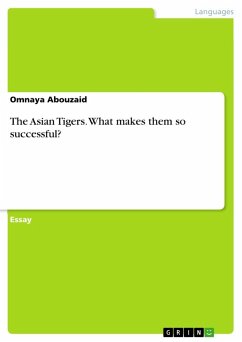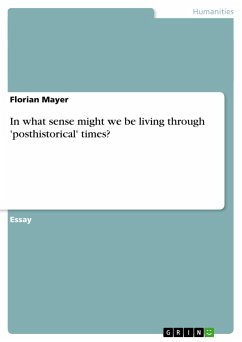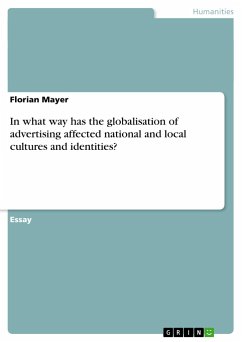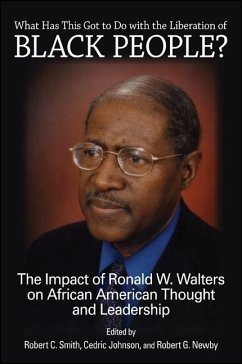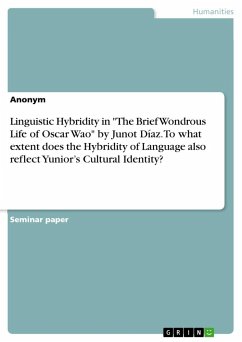
Linguistic Hybridity in "The Brief Wondrous Life of Oscar Wao" by Junot Díaz. To what extent does the Hybridity of Language also reflect Yunior's Cultural Identity?

PAYBACK Punkte
0 °P sammeln!
Seminar paper from the year 2021 in the subject Cultural Studies - Miscellaneous, Justus-Liebig-University Giessen (Anglistik), course: Contemporary Fictions of Migration, language: English, abstract: This term paper deals with the aspect of hybridity in Junot Díaz' novel "The Brief Wondrous Life of Oscar Wao" on the linguistic level. The first part of the term paper deals with the concept of hybridity by Homi K. Bhabha and Sten Pultz Moslund. Afterwards, the second part will focus on the narrative level in the writing of Yunior. The arguments will be based on a close look at the novel and th...
Seminar paper from the year 2021 in the subject Cultural Studies - Miscellaneous, Justus-Liebig-University Giessen (Anglistik), course: Contemporary Fictions of Migration, language: English, abstract: This term paper deals with the aspect of hybridity in Junot Díaz' novel "The Brief Wondrous Life of Oscar Wao" on the linguistic level. The first part of the term paper deals with the concept of hybridity by Homi K. Bhabha and Sten Pultz Moslund. Afterwards, the second part will focus on the narrative level in the writing of Yunior. The arguments will be based on a close look at the novel and the theories about cultural hybridity. Finally, the results of the chapters will be summarized to show and prove the hybrid point of view of the novel. The highly acclaimed novel was published in 2007 and won, among others, the Pulitzer Prize for Fiction 2008. It tells thestory of Oscar, a Dominican-American boy, who grows up in the immigrant neighborhood of Paterson, New Jersey, influenced by U.S. society, the diaspora, and Dominican culture. The mainconflict of the novel takes place between Oscar and the world. As an overweight, brown-skinned, fantasy-loving boy, Oscar tries to find a sense of love and affiliation in asociety that mostly rejects him. However, the novel focuses not only on Oscar's life butit also deals with the history of three generations of families, all of whom struggle withtheir identities. The narration of the story effectively captures diasporic identity because of the narrative style in the novel. The English language is interspersed with Spanishcolloquialisms. This hybridity of language reflects the world of the Caribbean, which shaped the author and, as it were, his characters. Hence, the 'in-betweenness' represents an important part of the book. The narrative style, namely the usage of Spanglish, also reflects in a certain way the own cultural identitysince language can reflect a person's self-perception as well as their world view. Furthermore, these two languages represent both countries and cultures that are relevantto the characters of the novel and their identity. In addition to the use of multiplelanguages, Diaz's fiction deploys a range of different registers.




